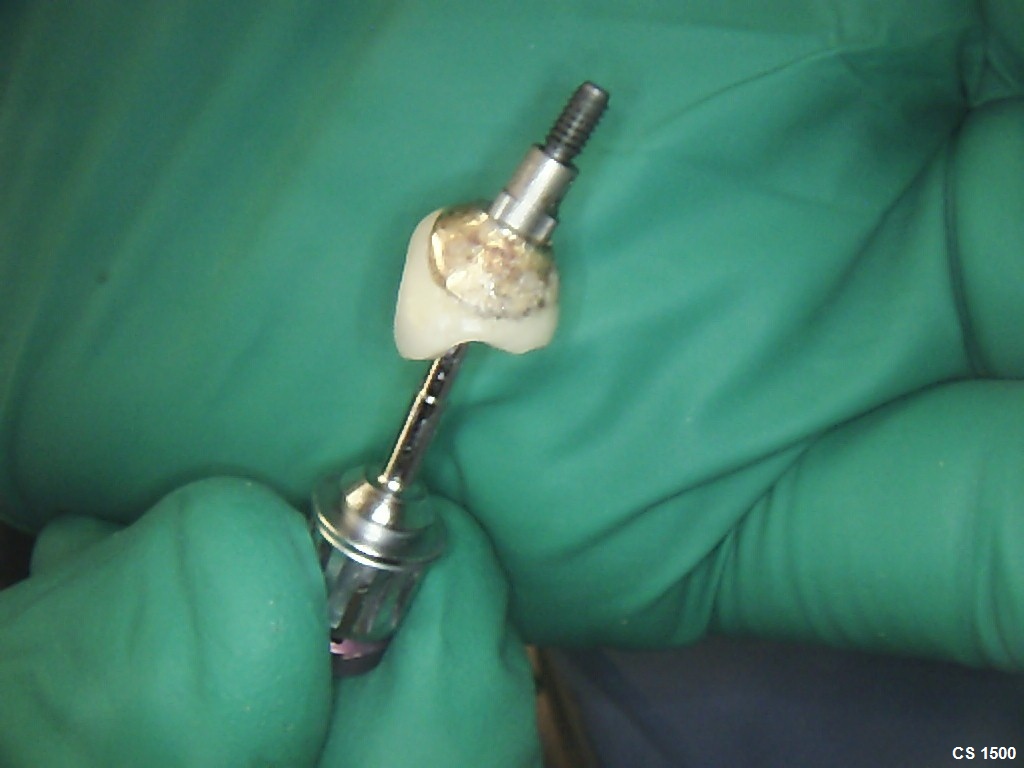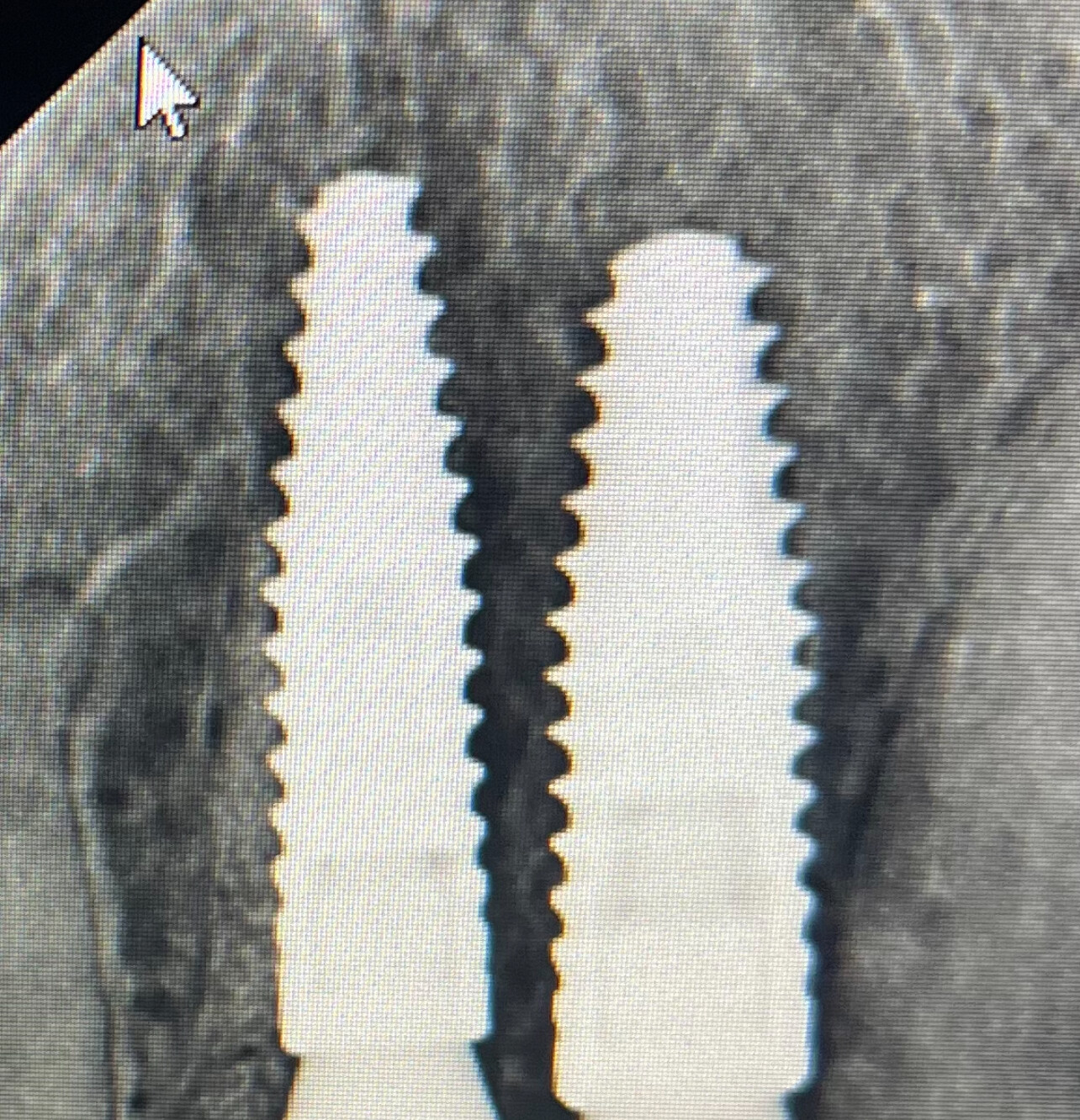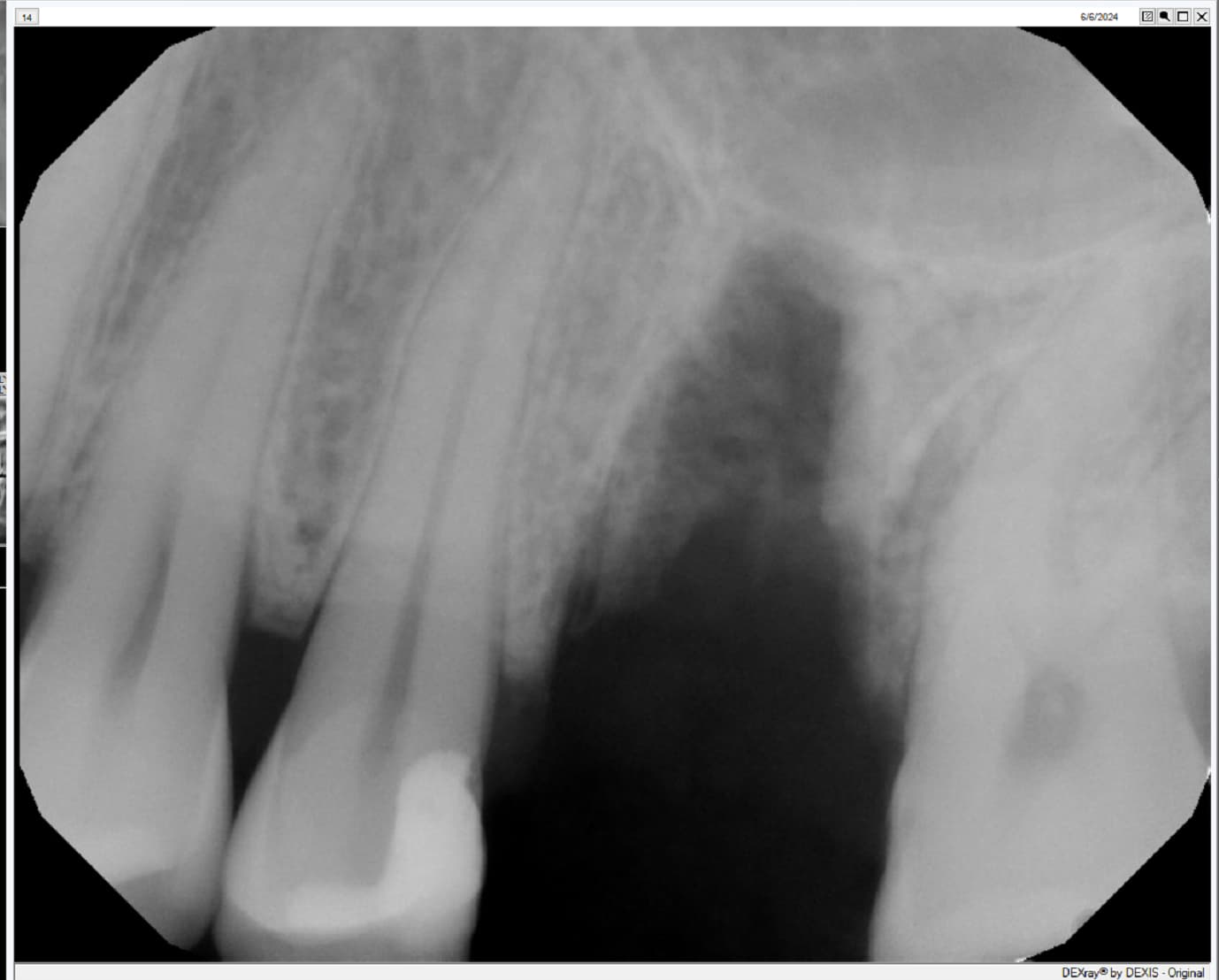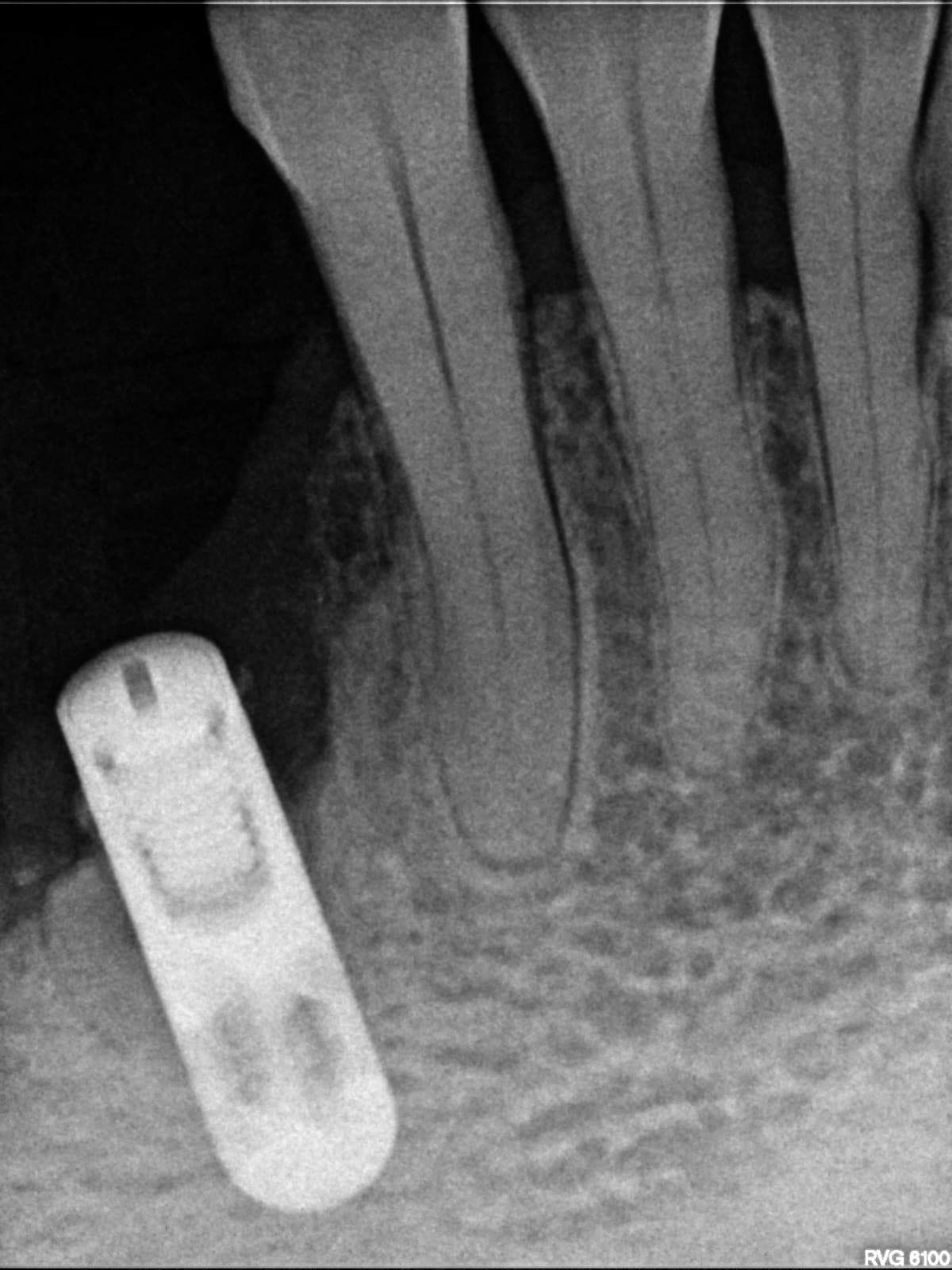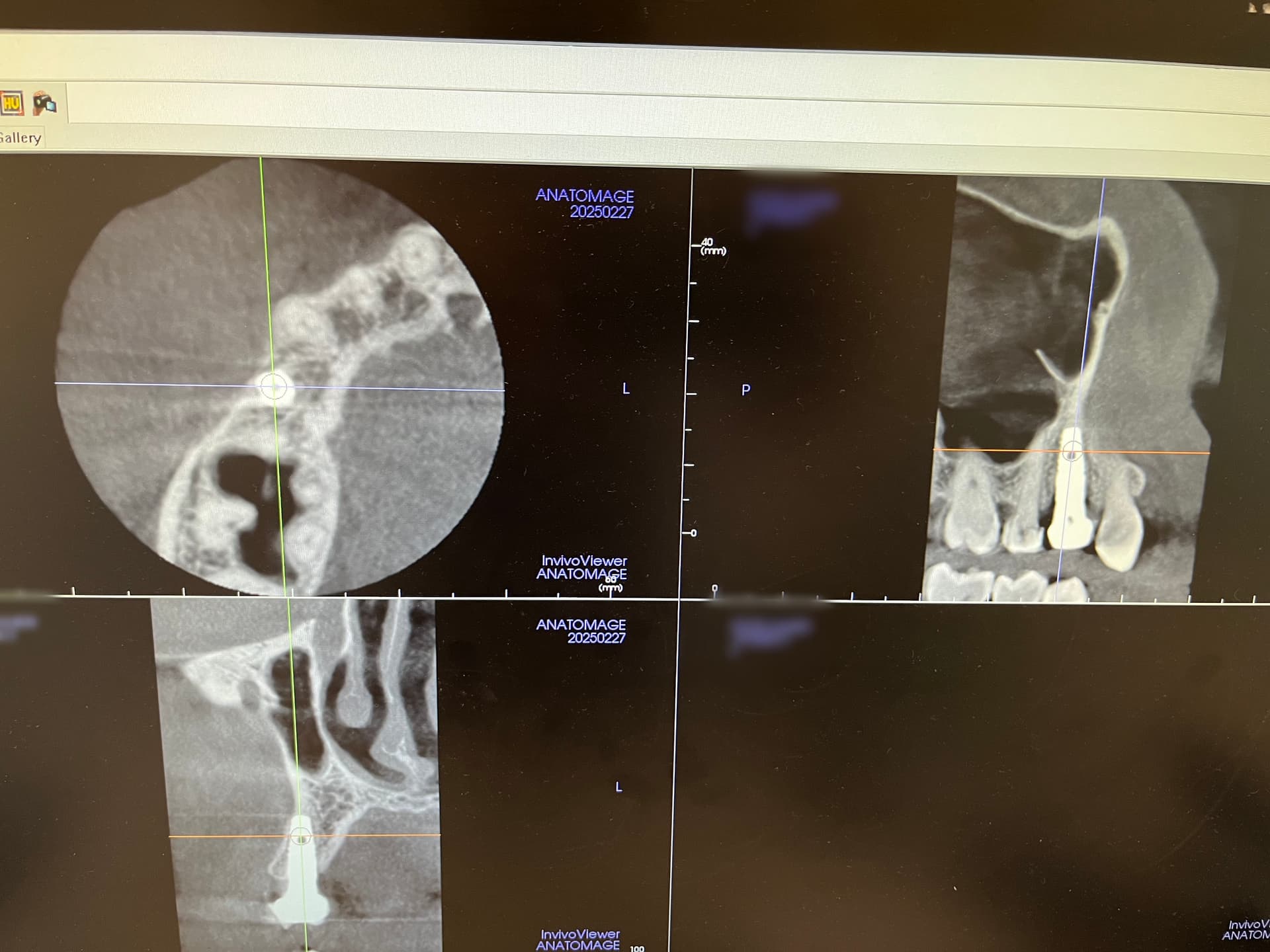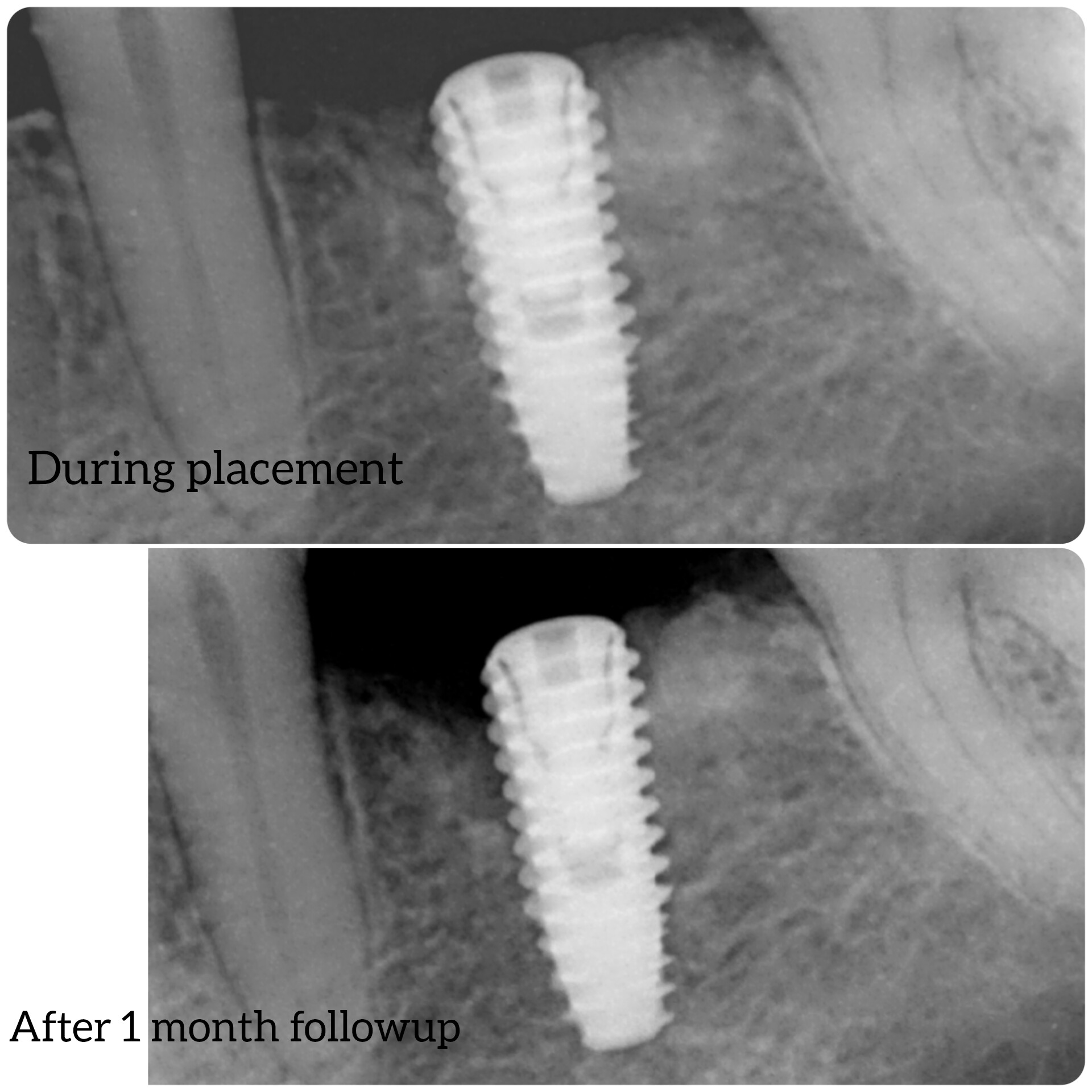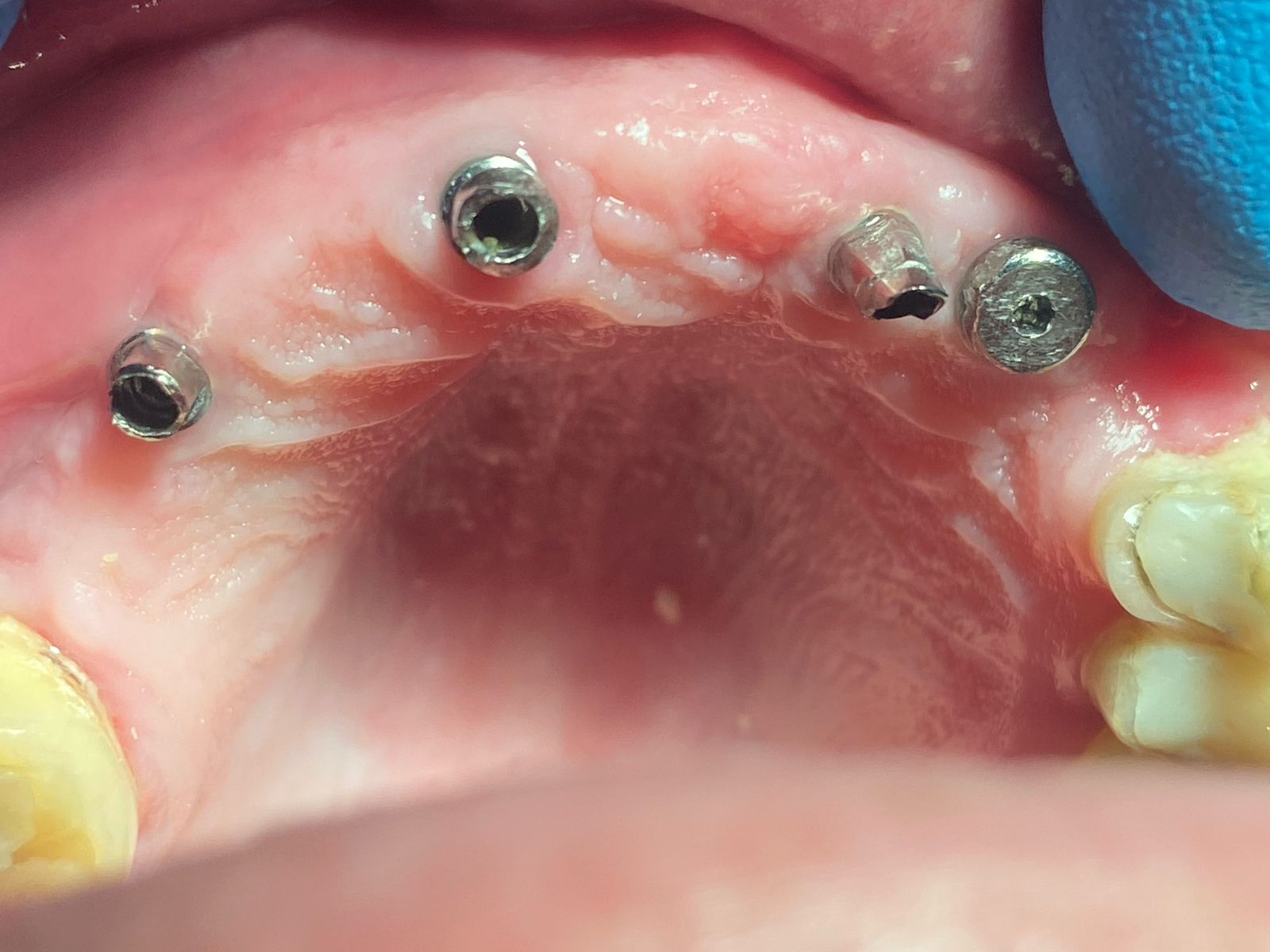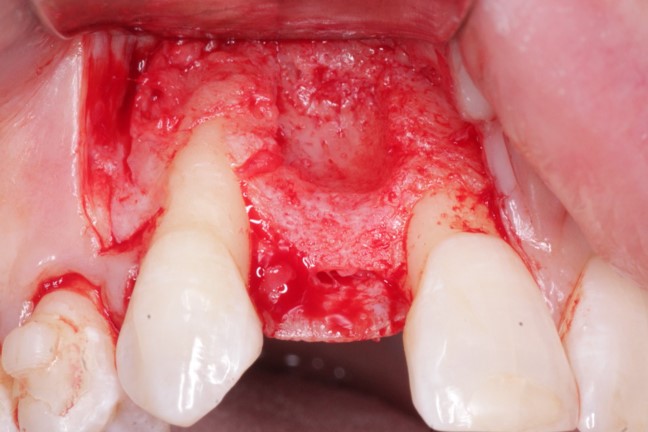Hemorrhaging After Implant Placement: Explanation?
Anon. asks:
I was recently assisting a colleague recently placing two immediate dental implants in the 12 and 14 area(UK). The 12 was restored by means of a 14mm implant and the 14 by a 11mm. The wound was closed and the patient was given post operative instructions. Soon after, while still at the surgery the patient had spontaneous, immediate bleeding from his right nostril. The bleeding was intense but ceased after about 5 min. I discussed this with the implantologist but was not entirely convinced by his explanation. Would you be so kind to comment on this? What could have been going on here?
20 Comments on Hemorrhaging After Implant Placement: Explanation?
New comments are currently closed for this post.
anon dr
12/10/2007
predumbably xrays were taken. ?CT scans. i would go back and check these thoroghly. sounds like an invasion of the nasal floor or sinus. i would recommend a review of the patient. were any post xrays taken? if you find something which you cant handle then refer appropriately.
Alejandro Berg
12/11/2007
This is a usual sympthom of a sinus perforation with membrane tearing. Normally if patient does not have active or chronic sinus disease or infection and if it is under antibiotics this should not be a problem, control x rays and post op controls and those should stay there , normally they fully integrate, just take good care of the patient for the first 3 weeks to be on the safe side.
good luck
Barry Sporer DMD
12/11/2007
it's a sinus perforation. just make sure you have proper antibiotic coverage (either augmentin 875mg bid for 10 days or a levapack may be more convenient). the implant should be ok.
Jack Hirschfeld, DDS
12/11/2007
I agree with Anon. Brisk bright red blood exiting from the nose is highly suggestive of perforation of the nasal floor. Take a close look at the post-op x-ray of the lateral incisor site.
Yazad
12/13/2007
The cause of this bleed could be either the sinus or the nasal floor being perforated.
Chances are more towards the nasal floor cause even if the sinus membrane is perforated in 14 region there aren't that many vessels in 14 region to provoke a brisk bleed.
What helps is a CT or a conventional OMV 45 degrees view to see air fluid levels in the sinus.
Hope this helps.
Nicholas Toscano DDS MS
12/13/2007
The most likely cause for the bleeding out the nose is sinus perforation as a result of the implant placement. Without seeing any radiographs it’s hard to say which implant perforated the sinus. Sinus anatomy varies from patient to patient so one or both of the implants may have perforated the sinus. The bleeding into the nose is probably coming from middle meatus which is situated between the middle and inferior conchae.
There may be a possiblity of a nasal floor perf but there are ways of examining both situations clinically and with imaging to determine cause of the bleeding.
In my humble opinion, At this point I would make sure you do aggressive follow up on the patient. Cover the patient with the normal regimen of medications used for sinus surgery and make sure the patient is adhereing to sinus precautions. As well as follow some of the other tips by the doctors above.
Good luck.
Dr SS
12/13/2007
Hi anon
what was the surgeons explanation you were not satisfied with?
I cant think of any other cause other than sinus perforation
By they way to add to our collegues above I would additionally reccommend that pt should avoid blowing their nose or sneezing for first few days
This is standard instruction with sinus graft or sinus invasion
Regards
ss
pete
12/14/2007
I think bleeding may be from greater palatine artery.
berto
12/18/2007
GREATR PALATINE ARTERY???????????????
prof.Dr.Dr.Hossam Barghas
12/19/2007
bleeding from the nose during implant surgery can happened as most of the colleague said is either from sinus penetration or nasal floor penetration, if it was from nasal perforation then the bleeding well happened during the drilling, but as you described it it happened after , this is explaine that it is most probably from the sinus because this well take time to fill the sinus first & then the blood well come later from the nose as you described. of course ther is membrane tearing , we call this implant (Implant under threat)which means even with the success of this implant , whenever this patient got sinusitis he/she well feel pain @ the site of the implant & very rare retrograde infection depending on the immune system of the person. of course this pateint has allways to take nasal dropeswhen ever starting to catch cold.hope he/she is not a smooker.
osurg
12/19/2007
Right you are Jack. I would also put my money on the floor of the nose being the site of perforation. The amount of bleeding is consistant with that Dx. I like most surgeons have ben in the sinus more time than I would like to admit. At no time did I have any brisk bleding. More often than not the patient would report a mild nose bleed the next day or so. Sudden bleeding would indicate the nasal floor. As suggested films or even a nasal speculum might answer the question.You might even see a small elevation just by looking in the nose.BTW you might want to review the treatment of acute nose bleeds so that you don't get into trouble if this should hapen again.
GWK, DMD, MMSc
12/22/2007
This might be an obvious question, but was there any history of nosebleeds in this patient prior to the procedure? There is a low incidence of spontaneous nosebleeds both venous and arterial in the general population.
Dr. Jim Cope
12/24/2007
"Brisk bleeding" may actually have been slight bleeding the accumulated in the sinus and poured out when the patient was no longer reclined.
I saw this occur on a teenage patient on whom I had removed tooth #3 due to invasive resorption, The surgery resulted in a 5mm oral-antral opening. The extraction site bled into the sinus while I sutured the site closed. When he sat up and the assistant took him to the Panorex machine a large volume of blood came out of his right nostril...alarming but not as bad as it seems. "Sinus Precautions" (antibiotics, decongestant, and avoiding pressure buildup in the nose) with "tincture of time" resulted in good healing without defect. Your implant case will likely heal well.
Jim
Gary D. Kitzis DMD
1/2/2008
In view of the statement that you are from the UNITED KINGDOM, I believe that the bleeding from the right nostril after placing implants in the RIGHT LATERAL INCISOR (FDI site 12) rather than the RIGHT SECOND PREMOLAR (FDI site 14). There was probably a soft tissue tear of the nasal floor when drilling the 14mm implant site at FDI site #12. That's called site one-two--NOT twelve in the FDI numbering system. The implant at site 14 (one-four) may have been the culprit, but in view of the rapidity of the bleeding and thefact that it stopped fairly quickly and uneventfully, the lateral incisor site was the most likely cause.
In the US system, tooth # 12 and 14 are ON THE LEFT. The bleeding was on the RIGHT.
In Europe they use the FDI numbering system, not 1-32 like the US. The FDI system is similar to the Palmer where teeth are numbered 1-8 from incisor to molar with the addition of a quadrant number. Quadrant 1 is UR, 2 is UL, 3 is LL, 4 is LR.
anon OMS
1/8/2008
"In view of the statement that you are from the UNITED KINGDOM, I believe that the bleeding from the right nostril after placing implants in the RIGHT LATERAL INCISOR (FDI site 12) rather than the RIGHT SECOND PREMOLAR (FDI site 14)."
excellent pick up! (These Kitzis guys are always annoyingly sharp - one was my instuctor in dental school - & we did not get along AT ALL! - but you gotta give props where they're due!)
Gary D. Kitzis DMD
1/21/2008
Whoa! I just re-read my post, and the FDI site 14 is the right FIRST premolar, not the second. The FDI second premolar is site 15. Sorry about that! I stand by everything else I wrote.
Rose
11/26/2009
A year ago I had an implant nbr 14. I have had sinus pain on that side the whole year. It's making me crazy. Because of the pain I did not go back for the abutment and crown. Should I have it removed. Will the trauma of that cause more problems and more pain.
The implant perforated the sinus cavity by about 2 to 4 mm...about 1/4 to 1/3 of the implant can be seen on the x-ray protruding into the cavity.
Richard Hughes, DDS, FAAI
11/27/2009
Rose, You may have a sinus infection that may or may not be related to the implants. It has been shown that bone will grow up to 4 to 5 mm. up an implant that has penetrated the sinus and without any complications.
vancouver
11/28/2009
i placed implants in the nasal penetrating nasal sinus; patient healed well we are now ready to restore (initial implant placement was may 2009); however patient still feels tender when touching left nostril area rating it a 2 on a scale of 1 - 10.
Radiographically area looks great, bone seems nice and dense all around implants; torque test at stage two surgery shows excellent implant stability and ready to reastore.
Periodontal tissue looks great, buccal bone feels good. Probablem seems to be with firm palpation over nostril when patient feels discomfort.
Any ideas roughly?
Kim
8/26/2010
I went for dental implants in about 2004. First the dental surgeon told me I would have to have a sinus lift, by adding liquid bone, mixed with my wisdom teeth which he said he would grind & blend into dust to add to the oral bone cement. Another dentist recently told me by exrays that this was never done and that there's no such thing, to my utter dismay and shock. This was to my Maxillary - upper to support the implant posts. Well, I went and it cost about $11,000.00 for the surgery. Needless to say I still have no implants. in 2004, The dentist told me, in a private meeting whilst showing me what was to take place on a human skull he had as a learning device. I tried to sue to no avail. Plus, the mandibular molars are just prongs, (posts), that bleed still and I have no resolve to this.










